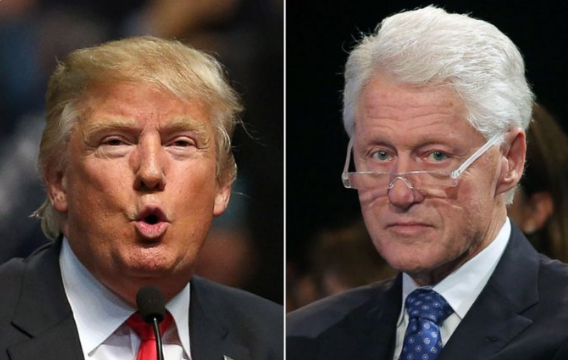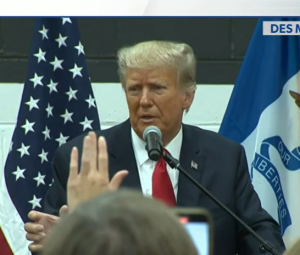Hours before his arraignment in Miami federal court, former president Donald Trump took to Truth Social to post a bizarre and confusing rant.
“THE GRAND JURY WAS NEVER TOLD ABOUT THE PRESIDENTIAL RECORDS ACT OR THE CLINTON SOCKS CASE, BOTH EXONERATING!” he wrote on the platform. A screenshot of the post has gone viral on Twitter.
Since no one had heard anything about the Clintons being involved in a Socks Case, Trump’s tweet confused many people. However, this is not the first time that Trump has mentioned the “Socks Case” that former President Bill Clinton was allegedly involved in.
Also Read | Joe Biden ‘laughed’ when asked if Donald Trump arraignment is ‘divisive’: Report
“They also don’t mention the defining lawsuit brought against Bill Clinton, and it was lost by the government — the famous socks case that says he can keep his documents. They don’t mention that. These are minor details. And that’s the ruling law,” he told a Columbus, Georgia, crowd June 10, during one of his campaign rallies.
He also wrote in an earlier Truth Social post: “Under the Presidential Records Act, I’m allowed to do all this. Under the Clinton socks case, the decision is clear.”
On June 9, Trump was indicted on 37 counts including the “willful retention of national defense information” relating to his allegedly illegal possession and storage of federal documents, including classified documents.
What is ‘Clinton Socks Case’?
When Bill Clinton was president, publications such as CBS, GQ and USA Today reported that Clinton kept the audiotapes of his multiple interviews with historian Taylor Branch in his sock drawer. The interviews were conducted in order to create an oral history of his presidency from 1993 to 2001. In 2009, Branch even published a book titled, ‘The Clinton Tapes: Wrestling History with the President.’
Following the revelation of where the audio tapes were kept, the National Archives and Records Administration was sued by Judicial Watch, a conservative group, in 2010. The group asked the court to declare the audio tapes presidential records under the Presidential Records Act.
The group also wanted the court to order the National Archives to take custody of the tapes and deposit them in the Clinton Presidential Library. The National Archives pushed back saying that the materials were the former president’s personal records that did not fall within the Presidential Records Act’s purview.
Years after Clinton left office, the case was dismissed by a U.S. District Court in 2012. The judge ruled that the law distinguished the tapes as “personal records,” distinct from “official” records, and as a result, the National Archives cannot take over the same.







